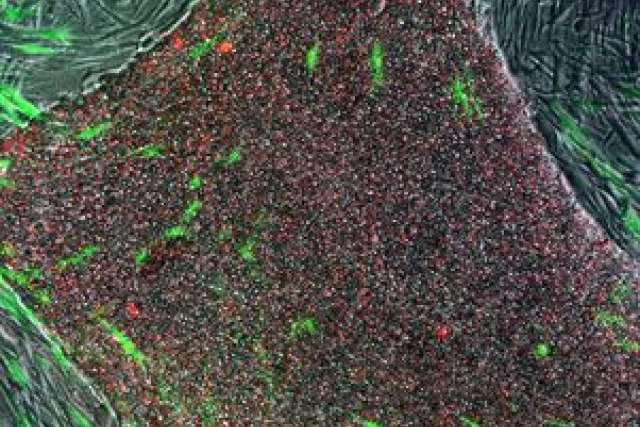Cell colony with induced pluripotent stem cells stained in red using the tumor rejection antigen, or TRA, method.
Two UCLA stem cell researchers have received a patent for their method of verifying that stem cells created in a lab using adult donor cells have potentially reached a pluripotent state, which means they are capable of turning into any other cell in the body.
The patent was issued to William Lowry and Kathrin Plath of the Eli and Edythe Broad Center of Regenerative Medicine and Stem Cell Research for their work using a tumor rejection antigen, or TRA, to identify stem cells that have pluripotent characteristics.
Induced pluripotent stem cells are cells that can be generated from adult cells and then, like embryonic stem cells, be directed to become any cell in the human body. But prior to the use of the TRA method, the process of picking pluripotent stem cells out of the other cellular matter contained in the petri dish was a lot like trying to find a needle in a haystack.
“Using the TRA method is an important validation step to ensure that the target cells have potentially been reprogrammed to a pluripotent state,” said Plath, professor of biological chemistry at UCLA. “This accurate identification of reprogrammed cells is critical as we conduct research to better understand the viability of pluripotent stem cells for therapeutic treatments for human disease.”
Validating the pluripotent state of stem cells has become a critical step in ensuring stem cell research studies are accurate.
Read the full news release.
Mirabai Vogt-James



